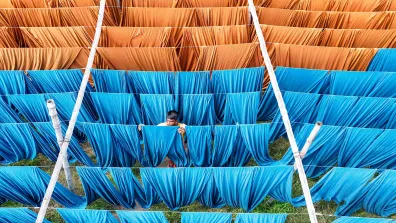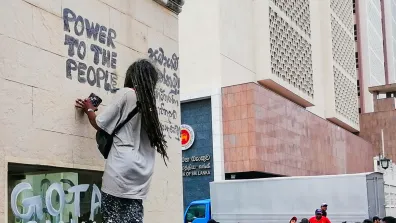Women’s Day: Not only a day but years of resistance
For almost a week, starting last night, we are staging a series of events and talks with inspirational speakers from Brazil, Honduras and Colombia. Last night, a packed audience at London University heard Dona Dijé, a leader of War on Want’s partner, the Movement of Nut Breakers in Brazil. Like 350,000 women from Afro or indigenous heritage, she ekes out a living off the babaçu nut in the Amazon basin and northeast of Brazil. But the destruction of babaçu palm forests to make way for large-scale commercial agriculture, cattle ranching, logging and biofuels, threatens their traditional livelihood. Their struggle is twofold - on the one hand against economic, political, cultural and racist structures that maintain women’s subjugation, and on the other against imperialism and capitalism in all its forms.
Donna Dijé explained that attacks on their livelihoods, cultural heritage and social fabric has led the movement to undertake economic activities which depend on conserving the babacu palm. It also undertakes political battles demanding the Brazilian government to protect biodiversity and oppose destructive landowners and companies.
Another speaker was Dina Meza, a journalist and human rights defender, forced to leave Honduras amid political persecution and police death threats. She emphasised that her struggle is like that of many other women around the globe. One woman is killed every 18 hours in Honduras. Yet dissidents such as Dina go on speaking out loud about impunity, corruption, the concentration of political and economic power in a handful of families and the country’s sustained militarisation. When questioned at the event about concern over the levels of violence against human rights defenders, women in particular in Honduras, Dina’s brief reply spoke volumes for her courage: “I have not fear”.
All three women symbolise the stirring fact that oppressed women continue to rise up and mobilising others against patriarchal economic and political structures which exploit and subjugate them.
War on Want’s Honduran partner, CODEMUH, which campaigns for women sweatshop workers’ rights, will also mark International Women’s Day, by taking to the streets in the country’s north-western city San Pedro Sula. The marchers will condemn violations to the entitlements of maquila workers. In addition, the demonstration aims to expose the government policies to give concessions of Honduran’s land and resources to companies and private investors.


